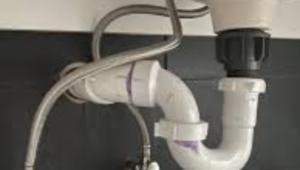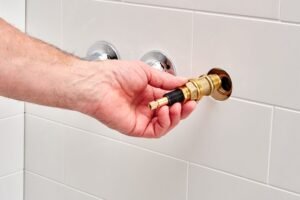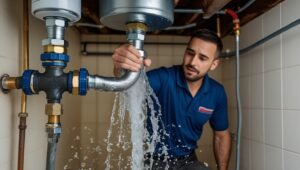As a plumber, having a solid understanding of the various types of water heaters is vital for guiding clients toward the best solutions for their residential plumbing system or commercial plumbing system. This knowledge allows you to balance client needs, preferences, and budget, ensuring customer satisfaction and reliable performance. Below, we’ll explore the water heater basics, their key features, and how to match them with different use cases.
Tank Water Heaters
Tank water heaters are the traditional choice for heating water in homes and businesses. These units store hot water in tanks ranging from 30 to 100 gallons, making them a reliable source for properties with consistent hot water demands.
- Storage Capacity: Choose a tank size based on the number of building occupants and their hot water usage patterns. For example, a family of four may require a 50-gallon tank.
- Heat Source: Powered by electricity, natural gas, propane, or oil, these systems vary in efficiency. While electric heaters are cheaper upfront, gas heaters save more on long-term energy costs.
- Recovery Rate: A high recovery rate ensures faster reheating of water after use, essential for high-demand environments.
- Insulation: Modern tanks are equipped with better insulation, reducing heat loss and improving energy efficiency.
Tankless Water Heaters
Popular for their energy efficiency and compact size, tankless water heaters (or on-demand systems) heat water only when needed, providing an endless hot water supply.
- Continuous Hot Water: These units eliminate the risk of running out of hot water, a major advantage for larger families or businesses.
- Compact Design: Ideal for properties with limited space, they can be mounted on walls or tucked into small areas.
- Energy Efficiency: Since they don’t heat water continuously, they consume less energy compared to tanks, leading to long-term savings.
- Initial Cost: While their upfront price is higher, the operational savings often offset the investment over time.
Heat Pump Water Heaters
Heat pump water heaters are a green alternative, transferring heat from the air to the water rather than generating it directly.
- Energy Savings: These units are up to three times more efficient than traditional electric systems, reducing utility bills.
- Installation Considerations: Adequate space and ventilation are necessary for their operation, making them less suitable for small areas.
- Hybrid Models: For peak demand, hybrid systems switch to electric heating to ensure reliable performance.
Solar Water Heaters
Harnessing the power of the sun, solar water heaters offer an eco-friendly option that reduces reliance on fossil fuels.
- Renewable Energy: By utilizing solar power, they minimize energy consumption and lower utility costs.
- Initial Investment: While upfront costs are higher, rebates and tax credits can make them more affordable.
- Backup System: A backup heating element ensures hot water during cloudy days or heavy usage periods.
Condensing Water Heaters
Condensing water heaters, a subtype of tankless systems, are designed for high efficiency by reusing exhaust gases to preheat cold water.
- High Efficiency: These systems reduce energy consumption significantly by utilizing heat from exhaust gases.
- Venting Requirements: Special venting materials are required due to the low temperature of the exhaust, which can slightly increase installation costs.
Point-of-Use Water Heaters
For immediate and localized hot water needs, point-of-use water heaters are an excellent choice. These compact units can be installed near sinks or showers.
- Instant Hot Water: They deliver hot water directly to the outlet, eliminating wait times.
- Energy Efficiency: By heating water only for a specific location, they prevent wastage and save energy.
- Versatility: These systems are perfect for supplementary use in larger setups or in locations with limited plumbing access.
Other Key Features to Consider
- Warranty: Look for water heaters with extended warranties (3-12 years) for better durability and peace of mind.
- Incentives and Rebates: Many high-efficiency models qualify for financial incentives, making them a smart investment.
- Glass-lined Tanks: These reduce corrosion, extending the life of tank-based systems.
- Digital Displays: Advanced models feature displays for monitoring water levels, temperature, and operational modes like vacation settings.
- Brass Drain Valves: More durable than plastic drain valves, they are a preferred option for long-lasting performance.
FAQs
Which water heater is best for energy savings?
Tankless water heaters, heat pump water heaters, and solar water heaters offer the highest energy efficiency, depending on the property and budget.How do I choose the right tank size?
The tank size depends on the number of occupants and their hot water needs. For example, a 50-gallon tank is suitable for a family of four.Are tankless systems worth the higher upfront cost?
Yes, the long-term savings in energy costs make tankless water heaters a cost-effective solution for many homeowners and businesses.
By mastering these water heater basics, you’ll provide clients with informed recommendations and professional service tailored to their needs.







One Response